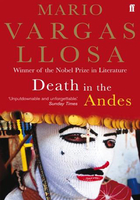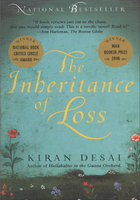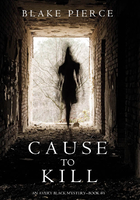I DON'T THINK I EVER ACTUALLY SAW THE face of the man who drove the gray Peugeot with the Quebec license plates down our dirt road on summer Monday mornings. The only time I saw his car in town, pulling up to the Village Store's gas pump, I hid from him because in my mind we were sworn enemies, though now I'm not sure he even knew that I existed. I was seven, almost eight.
I also don't know how we knew that the man in the gray Peugeot owned a French restaurant in Montreal, the kind that served frog legs. Someone told my mother and she told us, but we could tell that she thought that he was not worth knowing. The Peugeot only appeared in the summer and the early fall, and then the snow would fall heavily, as it always did in those days, and the wagon road that led up to the old farmhouse that he rented would never be plowed, and it was as though he had never been there at all.
The first time I saw the Peugeot stopped on our road, I thought it was stalled. I had woken up and noticed that our cat had not come home for two nights in a row, and was walking along the edge of the road, pushing my bike, looking into the tall weeds, hoping that I wouldn't find her there. The Peugeot looked like the kind of car that broke down a lot. Up close you could see little spots of rust along its bottom edge. Its tires looked smooth and small. It was stopped right in the middle of the road, as though the man could not have imagined anyone else needing to go anywhere. He was lucky my mother was still in bed; she drove fast and surely would have called him an a-hole and might have even run into him. The man was standing over the car's low, curvy hood, on which was balanced a tin bucket, the kind used for collecting sap from a maple tree. His shoes were shiny and flat and had square toes that stuck up in the front, so much so that I could see them doing so from the back, and his pants were tight and creased and an ugly brown. His body bulged out above his belt, and his arms looked skinny and long as he dug around in the tin bucket with quick, careful movements. His face was hidden from me.
Next to him stood Clive and Ronnie Rogers, still dressed in their barn clothes. They weren't exactly brothers but a nephew and uncle who were only a few years apart, and inseparable. Their family was a prolific lot with a confusing structure that lived in a group of houses and trailers clustered around a small cow barn at the bottom of a wet gulch about a mile from our house. The gulch always smelled of the cows that grazed its sloped perimeter, leaving thin green paths through the trees and chewing away anything that resembled grass, exposing rocky outcroppings covered with a beautiful mossy carpet that would have been perfect for wandering along if it didn't smell so sour. There were always lots of cars in their driveways, clustered together and looking related, all vaguely American, bland in color, all of them afflicted with varying amounts of the same rash-like rust.
Clive and Ronnie were just a few years older than my twin sister and me and had a sister—and/or cousin—who was just a year younger, but we never, ever considered her a potential playmate except for the one time we heard Clive bragging that they had caught a baby raccoon and were keeping it as a pet, but by the time we got there it had caused such destruction that it had been returned to the woods. I remember Clive's sad, plain little sister standing in her doorway explaining to me why raccoons did not make good pets. "They sleep during the day, and at night they rob you and chew on you." My sister and I were horrified by her callousness and spent the better part of that day walking through the marshy woods around the gulch looking for the baby raccoon. Nothing small could survive for very long without a mother here, even in the summer. We filled our pockets with cat food and made small piles of it on downed trees and on wide maple leaves, set like plates, wondering at the odds of her having been found by her mother. We decided that if we found her, we would take her home and let her chew on anything she liked. There wasn't a single item or surface in our home that required protection from chewing or scratching or dirt, and we certainly didn't have anything worth robbing. We lived without much separation between indoors and out, the presence of wildlife not being an exception, unless it was very cold, and then it was not us that the doors and windows were meant to keep in but the precious heat that we struggled to trap between our uninsulated walls.
The boys looked up at the man as though they were waiting for something. After a moment of what seemed like tense discourse, they all took a step back from the bucket, and the man reached into his pocket and pulled out his wallet, opened it, and gave each boy what looked like a dollar bill. Then he put the bucket into the trunk of his car and drove away, giving them a slight, dismissive wave as he went. Clive and Ronnie were walking toward me now, in quick, excited steps. Ronnie, who was younger and still occasionally forgot to try to look tough around girls, shook his dollar at me. "A whole dollar, look at that!" he said, and then spun around on his sneakered heel and waved the bill in my face.
"For what? Nightcrawlers?" I asked, knowing that even the very large ones weren't worth more than five cents, and the man did not look like a fisherman.
Ronnie clearly wasn't sure if he was supposed to tell me, and looked to Clive, who took a step toward me and turned his head slightly before saying in a terrible, older-boy voice, "No, stupid. Frogs." I said nothing but pushed past them with my hands tightly wrapped around my handlebars and then climbed on my bike and, when I knew that they couldn't see me anymore, I started pedaling hard in the direction of home. That bucket had been full of frogs, maybe twenty of them, all destined for the man's plates. They had come from the beaver pond, surely. Those were my frogs, and they didn't belong in a pot or a pan or whatever was used to cook a frog. They belonged in their pond. In my pond.
My mother was equally horrified, at least momentarily, when I told her what I had seen, but was more focused on the coffee sputtering away on the gas burner of our stove. She stood with one hand on her hip, wearing an ankle-length flannel nightgown and already smoking an unfiltered Lucky Strike cigarette. The doings of our neighbors were of endless interest to her, even though she lived far above them all in her mind. We were surrounded by people who were all close-knit, intermarried, and endlessly connected. We knew everything about them and they knew everything about us, but we were not a part of the community that was their whole world. We were outsiders, even though my sister and I had been born in Vermont and had lived there our whole, short lives, going to the same schools and stores. We were better than they were; this was made clear to us. My mother had grown up the daughter of an oil man, after all, and had gone to the very best schools in Europe and on the East Coast and was an artist and a bohemian and lived in an old, one-room schoolhouse on the top of a mountain with two tiny daughters by choice, because the beauty and solitude were inspiring and moving and because she wanted to grow her own food and flowers. We had options. Except that now we were here because we had no other place to go. We had been here so long and were so distracted by trying to keep the house from freezing solid that we had started to forget what those options were, and now the money was all gone and we were just as poor as the Rogerses and everyone else who lived on our road year-round. The happy, idealistic band of young people with whom my mother had come here ten years prior had mostly gone home to Connecticut and Virginia, and when they came back to visit us, their new husbands and wives and then children would step out of their shiny cars and stand at the edge of our yard wondering how they were supposed to get to the front door without ruining their shoes.
My sister was sitting at the long bar that divided our kitchen from the rest of our living space, eating toast and petting Plum, the cat that I had been out looking for all morning. I pulled Plum down into my arms and gave her an unwanted hug. She was plump and soft and fine and wriggled away from me and back to my sister and the poorly guarded butter dish. My sister shared my dedication to the protection of The Cute, especially The Baby Cute. We loved frogs, with their wide little eyeballs and glossy green noses poking out of the water at the edge of our beaver pond and their perfect, little webbed fingers. We loved the way they swam and copied them when we were underwater in the deep pool that was at the base of the waterfall behind our house. "Watch me," we would say to each other, one of us on the rock that we used as a jumping-off point and the other already in the water. "And tell me if I'm doing it right." And then we would take a deep breath and dive under and swim like a frog through the crystal-clear water until we reached the edge of the pool where the waterfall was and we would come up for air and look to see what sort of frog-swimming score we had earned. "I would have had my fingers apart," I would shout over the roar of the waterfall, holding my hand up with my fingers spread, "except they aren't webbed enough, so it's better if they are closed."
I had caught a million frogs, but I had let them go. If they were small and young, they almost always peed in your hand from being afraid. Frogs can see shadows with their eyes closed, because their skin is so thin, so you must be very careful not to get between them and the sun. The trick to catching them is to wait for them in the water, with the sun in your face. They will be sitting on the edge of the water, especially if it's morning, warming themselves up. Then you have your sister or your dog startle them from behind so that they leap into the water and start swimming madly. Frogs are not good at making quick turns when they are swimming as fast as they can, so you need only to cup your hands and position them underwater properly, and they will swim right into them. It's very important to let them go right away. They breathe through their skin, and if you get too much of your own skin's oils and dirt on them, they can get very sick.
We knew that the man only came up on weekends and that Ronnie and Clive must have been waiting for him on the road, above the beaver pond. They had probably flagged him down on that Monday morning, and they probably knew what we knew, which was that he would be making the same trip every Monday morning until wintertime. A dollar was a lot of money. In 1975, it bought a gallon of milk and a dozen eggs. It also bought one hundred Tootsie Rolls at the Village Store, ten Popsicles, or two gallons of gas. Ronnie and Clive didn't own the beaver pond, but neither did we. They surely saw its frog population as theirs for the taking, and we saw it as ours to protect.
We knew that we could get to the pond before Ronnie and Clive because they had cows, which meant that they had morning chores. They would be up at dawn, but it would take them at least an hour to finish milking. We did not have anything resembling a chore and needed only to put on our shoes and run out the door. On Sunday night we went to bed in our clothes, which we did most of the time anyway. We found plastic buckets and put them by our bed, next to our shoes, their laces untied and waiting. When the first bit of light came into our room, we bolted out of bed and put them on. I made a double knot in case I had to step into the pond, which had such a thick, muddy bottom that it would suck off a shoe if it wasn't secured tightly. We ran out the front door, past the motionless pile of dark red hair, wool blankets, and cats that was our mother, still sleeping.
We had only to run across our road and through a large, sloping horse pasture to get to the beaver pond. Clive and Ronnie would come through the woods, where there was an overgrown road that began in their gulch. It was the same road that intersected our own, and it was at that intersection that I had seen them the week before selling the frogs. The sun was still coming over the hills and nothing was warm yet; the frogs were all still sleeping in their mud. We lay down on our stomachs in the grass ten feet from the water, with our chins resting on our folded hands, waiting for them to come out of hiding. Soon we could feel the sun hitting our backs and our bare forearms. It became hot quickly, and I could feel the water in my shoes becoming mist. I could hear small noises coming from the water, tiny splashes and plunks, and I knew that they were waking up now and climbing into the tall grass along the edge of the pond to sit in the sun. When I pulled myself up onto my knees to steal a look, two or three frogs leapt back into the water, so I quickly lay down again.
The pond wasn't very deep. Its water was dark and still, and where it began and the pasture and woods ended was hard to discern in most places. The beavers that had built the dam and clogged the small creek and flooded the low-lying area—or at least their descendants—lived on the far, forested edge. There had been trees on either side of the creek before the beavers and before us, but now there were gray, splintery stumps poking up through the water. Sometimes when the pond was frozen over, we walked all the way around it, running mittened hands over the tops of the thin stumps, tracing the lines that the beavers' teeth had made, but the rest of the year you could only reach the water in one small area, which was where we were now. The mud had been packed down here, probably first by the horses that used this pasture every few summers, and then by deer and other animals that came to drink, so that you could reach the edge and even take a few steps in.
When the sun was completely up I stood and walked carefully toward the water with the bucket. I went to the far edge of the muddy beach and stepped into the water and, almost immediately, felt the bottom give way beneath me. It didn't seem to be trying to hold my weight, even for an instant. Silky mud filled my shoes and then climbed up my legs, growing cooler the deeper I sank. I pulled my legs up and moved as quickly as I could toward the center of the muddy beach until I could feel almost solid ground under my feet. The water was just above my knees. I stood in front of a patch of grass that looked like a good place to find frogs and waved to my sister. She took a step toward the pond, and we could hear them begin to jump. I was looking into the sun, which was still low on the horizon, and couldn't see very clearly, but when I looked down, I spotted them in the water, swimming toward me.
Clive and Ronnie came fast, racing each other down the last stretch of road, each with their own bucket. I had a single brown frog in my cupped hands and another swimming toward me when I saw them reach my sister. Clive grabbed her bucket, which was empty, and threw it on the ground. She was frozen, looking up at them. In a few seconds she would be angry; I could see it in the way her shoulders were going up. My sister was smaller than I was and quieter, but she did not like being told what to do, and clearly someone had done just that. Ronnie was coming after me now, and he was wearing high rubber boots that looked ten sizes too big, rising above his knee and making it hard for him to run toward the water. I wanted to turn and swim or run from him, but there wasn't anywhere else to get out of the pond, so instead I had to try to run past him with enough breadth to keep him from pulling me down. I thought of warning him that the ground gave way as soon as you moved away from the beach, because neither of us would be safe if he chased me out there, but his face was so red and angry that I didn't see the point. His hand was suddenly on the edge of my bucket, which now contained my single brown frog, pulling. I looked into his eyes, which were way too close together, and yanked back as hard as I could. He lost his balance, just for an instant, and the frog jumped free and disappeared from sight.
I looked up at my sister in time to see her reach the water, shouting and waving the last of the frogs into the water. Clive had run past her and was making slow progress trying to walk along the muddy edge, hoping to find a patch of frogs that had not been disturbed by the melee, but my sister was screaming so loudly that even the birds on the other side of the pasture were taking flight. Not knowing exactly what advice would motivate a frog to run for safety, she resorted to a repeating loop of phrases like "Stupid boys who smell like cows are trying to get you!" and "Eating frogs is gross!" There could not have been a nonalert living thing within a quarter mile. Unfortunately, a few of the frogs were swimming toward me now, and toward Ronnie. He ruthlessly grabbed one fat brown fellow by his hind legs, and was trying to stuff him into his pocket so that his hands were free to grab another when I reached him and pushed him down. Until now his boots were still above water, but once he went over they filled quickly, and he was having difficulty getting up. I pushed him down again, this time too hard, and turned to see if there were more frogs coming toward us. The water, and the woods around us, was completely silent. Ronnie was calling me horrible, grown-up bad names now, ones I had not even heard before, even though we lived in a profanity-rich environment. And that was when we saw the man in the gray Peugeot, or at least, the gray Peugeot, with a shadow of a man barely visible through the driver's side window, which was rolled up against this beautiful morning and all the dust that its own wheels were making. It was moving very fast, high above us on the other side of the pasture and far beyond shouting distance. Too fast, it seemed, to allow the man to keep his eyes out for two boys selling frogs or plump, slow-moving cats, or anything else that mattered to any of us along that road. Ronnie was almost out of the water now, carrying his boots above his head. He spilled the water out of them and pulled them on, and he and Clive walked away from the pond, toward their old road. They bent their heads together for an instant and then walked into the woods with heavy, wet steps.
My sister and I walked back up through the pasture with our buckets, looking for other things to fill them with. The strawberries were long gone, and the mint was too thick and prickly by now. We left our buckets on the porch because coming into the house with them empty would make our mother think we had failed at something, which we most certainly had not. When we told her what happened, she bent her thin legs at the knees and put her hand on my shoulder. "Listen to me, Tupy," she said. "I don't want you playing with those boys again; they are not nice boys. Do you understand me?"
"Yes, I do," I said. My sister nodded, too.
The following Monday morning was the day before the first day of school. The gray Peugeot had not been seen on the road since the morning we had saved the frogs. Fall was short that year, the leaves were gone by late September, and then there was a bitter, snowless October. Monday mornings were now an endless and often-lost battle to get out of bed and to the third grade. One morning in November we woke up to a thick blanket of snow. We took our sleds to the horse pasture that afternoon and ran them downhill to the beaver pond, where it was silent and peaceful. We knew that buckets and buckets of frogs were buried in the mud below the ice, sleeping soundly until spring.















